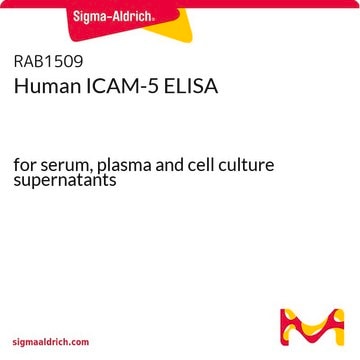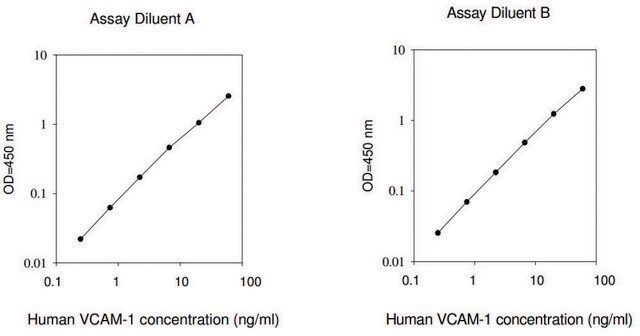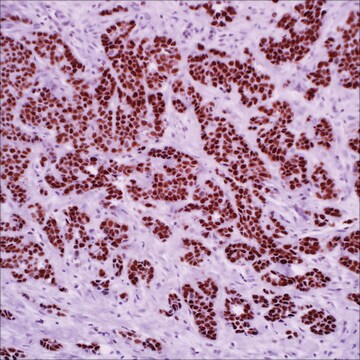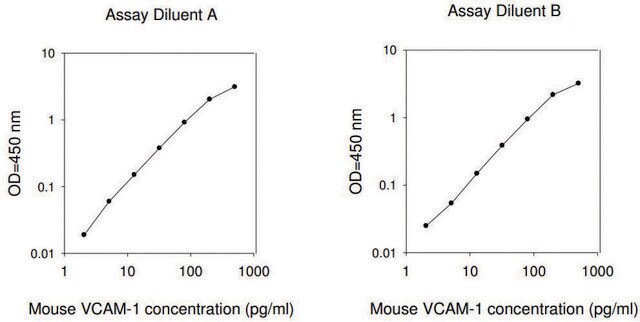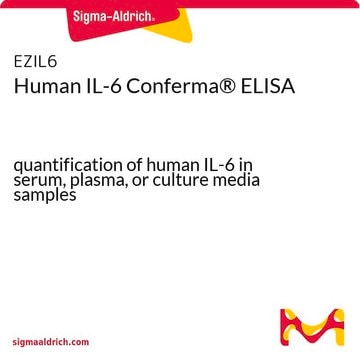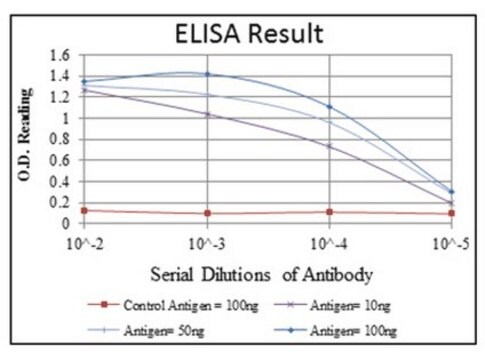RAB0220
Mouse ICAM-1 ELISA Kit
for serum, plasma and cell culture supernatant
Seleccione un Tamaño
609,00 €
Seleccione un Tamaño
About This Item
609,00 €
Productos recomendados
reactividad de especies
mouse
envase
kit of 96 wells (12 strips x 8 wells)
técnicas
ELISA: suitable
capture ELISA: suitable
entrada
sample type serum
sample type plasma
sample type cell culture supernatant(s)
assay range
inter-assay cv: <12%
intra-assay cv: <10%
sensitivity: 20 pg/mL
standard curve range: 24.69-6000 pg/mL
método de detección
colorimetric
Condiciones de envío
wet ice
temp. de almacenamiento
−20°C
Información sobre el gen
mouse ... Icam1(15894)
Descripción general
Inmunógeno
Aplicación
Please refer to the attached General ELISA KIT Procedure (sandwich, competitive & Indirect ELISA)
Acciones bioquímicas o fisiológicas
Otras notas
Please type the word sample in the text box provided for lot number.
Los componentes del kit también están disponibles por separado
Palabra de señalización
Warning
Frases de peligro
Consejos de prudencia
Clasificaciones de peligro
Met. Corr. 1
Código de clase de almacenamiento
8A - Combustible corrosive hazardous materials
Elija entre una de las versiones más recientes:
¿Ya tiene este producto?
Encuentre la documentación para los productos que ha comprado recientemente en la Biblioteca de documentos.
Filtros activos
Nuestro equipo de científicos tiene experiencia en todas las áreas de investigación: Ciencias de la vida, Ciencia de los materiales, Síntesis química, Cromatografía, Analítica y muchas otras.
Póngase en contacto con el Servicio técnico